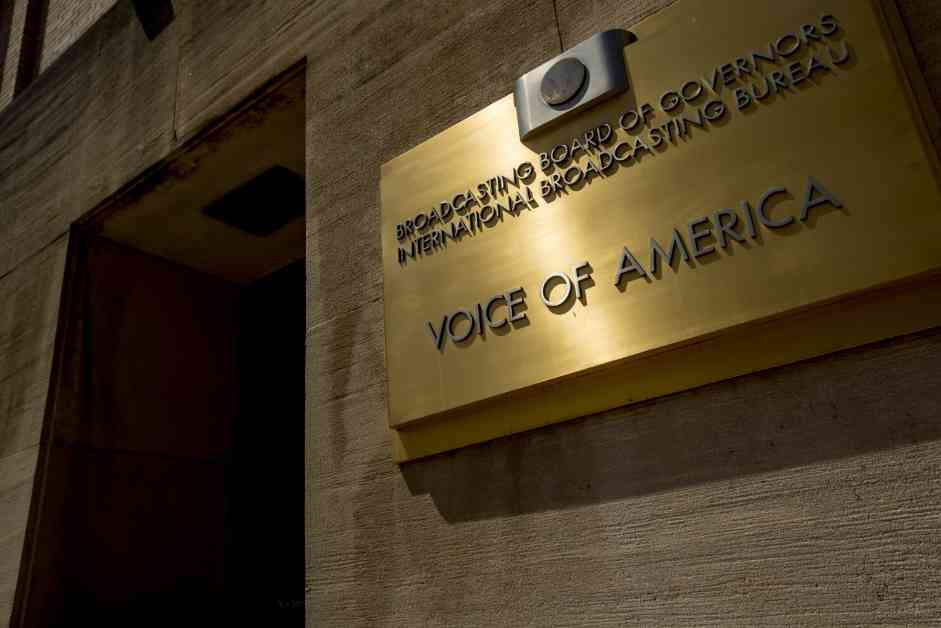Voice of America Funding Frozen by Trump Administration
In a shocking turn of events, the Voice of America, an iconic institution with an 83-year legacy, is facing a sudden and unprecedented halt in its operations. Michael Abramowitz, the director of the organization, expressed his dismay, stating that for the first time in its history, the Voice of America is being silenced. The gravity of the situation is underscored by the fact that nearly the entire 1300-person staff has been placed on leave, casting a shadow of uncertainty over the future of this renowned broadcasting network.
Executive Order Freezes Funding
The catalyst for this drastic development came on a fateful Friday when President Trump signed an executive order to curtail the functions of various agencies to the bare minimum required by law. Among the agencies affected by this directive is the U.S. Agency for Global Media, which serves as the umbrella organization for Voice of America, Radio Free Europe and Asia, as well as Radio Marti, a platform that disseminates Spanish-language news into Cuba. This move has sent shockwaves through the media landscape, raising concerns about the implications for press freedom and democracy on a global scale.
Voice of America’s Mission in Peril
The Voice of America has long been recognized for its role in promoting freedom and democracy worldwide by providing objective and balanced news and information. By narrating America’s story to audiences living under oppressive regimes, the VOA has served as a beacon of hope and a source of reliable news in turbulent times. The abrupt disruption of its operations has left many reeling, with one anonymous reporter lamenting, “We expected something like this to happen, and it just happened to be today.”
Global Outcry and Condemnation
The decision to freeze Voice of America’s funding has sparked outrage and condemnation from various quarters. Reporters Without Borders, a Paris-based press advocacy group, decried this move as a departure from the United States’ historical commitment to defending free information. The organization called upon the U.S. government to reverse its decision and urged Congress and the international community to take a stand against this unprecedented assault on press freedom.
Implications for Radio Free Europe and Asia
The repercussions of this funding freeze extend beyond the Voice of America to other entities under the Agency for Global Media. Radio Free Europe/Radio Liberty, which has been instrumental in providing news to countries with authoritarian regimes such as China, North Korea, and Russia, is also facing uncertainty. The termination of grant agreements for Radio Free Asia and other programming adds to the sense of crisis looming over these vital news outlets. The potential loss of these networks would not only deprive millions of people of access to reliable information but also hand a significant advantage to America’s adversaries, as noted by Stephen Capus, the President and CEO of Radio Free Europe/Radio Liberty.
In conclusion, the freezing of Voice of America’s funding by the Trump administration represents a critical juncture in the battle for press freedom and democratic values. The implications of this decision reverberate far beyond the confines of the media landscape, touching on core principles of democracy, free expression, and the global struggle against authoritarianism. The fate of Voice of America and its affiliated networks hangs in the balance, awaiting a resolution that will determine the future of free information in a rapidly changing world.

